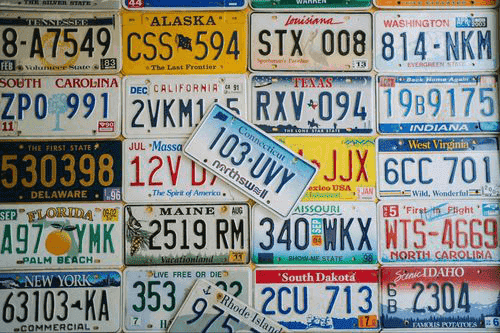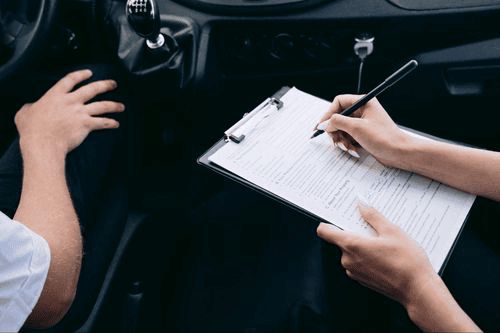Table of Contents
Does It Cost Money to Register a Car?
Vehicles can be expensive. From the initial purchase price and transportation costs to the expenses related to routine maintenance, you can expect your car to cost a pretty penny over the years. If you purchase a new or used car, you will need to register the vehicle with the Department of Motor Vehicles (DMV) or the applicable government transportation agency in your state. You’re expected to pay a fee to register your vehicle after you purchase it or move to a new state. But how much does it cost to register a car? The answer is that it depends because registration fees tend to vary from state to state.
What Is a Registration Fee?
A registration fee is the cost to register your car with a government agency, such as the Department of Motor Vehicles (DMV) or the Bureau of Motor Vehicles (BMV). Vehicle registration is required for all drivers on the road because it allows government agencies to identify both personal and commercial vehicles in the state. Your car’s registration card is a document that contains information about the vehicle, such as the make and model, Vehicle Identification Number (VIN), and the name(s) of the individuals registered to the car.
If you move to a new state or purchase a car, you are required to register your vehicle accordingly. After you appropriately register your car within the designated time frame in your state (typically around 30 days), you will be required to renew this document yearly or every two years depending on your state of residence. States like Michigan and Missouri allow residents to renew their vehicle registration every two years, which can be more convenient.
Car Registration – How Much Does It Cost?

Car registration costs tend to vary from state to state because the process is handled differently and states use the revenue generated from registration fees for different purposes. In Michigan for example, vehicle registration fees are used to pay for transportation projects and maintain roads throughout the state. In California, registration fees can help the state fund everything from local fingerprint identification programs to transportation projects and maintaining freeway emergency call boxes.
Keep in mind that the registration fee can change depending on the car’s age, size, Manufacturer’s Suggested Retail Price (MSRP), and total vehicle weight. For example, the cost to register a car in Texas can be different than in Oklahoma because, in Texas, the county you live in can impact the total registration costs.
Below is a list of the estimated fee structure for registering a car by state.
| State | Estimated Registration Fee Structure |
| Alabama | Ranges from $15 – $203 and Depends on Vehicle Type |
| Alaska | Varies by Weight, Model Year, Commercial/ Non-Commercial Vehicle Type, and Any Specialty Requests |
| Arizona | $2.89 per $100 of Assessed Value for New Vehicles and $2.80 per $100 for Used Vehicles – Plus Applicable Fees |
| Arkansas | Depends on Vehicle Weight and Type |
| California | Based on Factors like Vehicle Type, Purchase Price or Declared Value, City/County, Gross Vehicle Weight, etc. |
| Colorado | Based on Vehicle Type and Weight |
| Connecticut | Varies by Vehicle Type, Commercial / Non Commercial, Seating Capacity, and Weight or Sq. Footage |
| Delaware | Base Fee for a Vehicle Weighing 5,000 lbs or Less is $40. $15 for Motorcycles |
| Florida | Depends on Vehicle’s Weight |
| Georgia | $20 for Regular Passenger Cars and Lightweight Pickup Trucks – Depends on the Type of Vehicle |
| Hawaii | Based on Vehicle Weight |
| Idaho | Depends on Vehicle’s Model Year and Type |
| Illinois | Depends on Vehicle Type, Age, and Weight |
| Indiana | Depends on Vehicle Type |
| Iowa | Depends on Model Year, Weight, and List Price |
| Kansas | Depends on Vehicle Type and Weight |
| Kentucky | Varies by County |
| Louisiana | Ranges from $12 – $40 with Other Fees Added, Like a Plate Fee That Ranges from $20 – $82 |
| Maine | Depends on MSRP and Vehicle Type |
| Maryland | Depends on Vehicle Weight and Class. Passenger Cars up to 3,500 lbs are $221 Every Two Years or $110.50 Annually |
| Massachusetts | $60 for two years |
| Michigan | Based on Vehicle Value, Weight, Fuel Type, Body Style, and Age |
| Minnesota | $35 and Up – Based on a Percentage of the MSRP |
| Mississippi | Depends on Type of Vehicle, County, Vehicle’s Value, and Whether it’s a First-Time Registration or a Renewal |
| Missouri | For Passenger Vehicles, the Fee is $18.75 and Up (Based On Taxable Horsepower) Plus a Processing Fee of $6 – $12 For Commercial Vehicles, Based on Weight and Estimated Driving Range |
| Montana | Depends on the Vehicle’s Age, Weight, and Whether it’s a Passenger or Commercial Vehicle |
| Nebraska | Depends on the Type of Vehicle |
| Nevada | $33 Plus Taxes Based on Original MSRP |
| New Hampshire | Varies by Town and City. Depends on Model Year |
| New Jersey | Depends on the Type of Vehicle |
| New Mexico | $27 – 62 But Can Increase Based On Weight and Age of the Vehicle |
| New York | Depends on Type of Vehicle, Weight, Fuel Type, Cylinders, and Number of Liens |
| North Carolina | Depends on Type of Vehicle and County |
| North Dakota | Depends on Vehicle Age, Value, and Weight |
| Ohio | $6 – $200 and Up Depending on the Type of Vehicle and the Length of the Registration |
| Oklahoma | Depends on the Type of Vehicle |
| Oregon | Depends on Vehicle Type, Age, and County |
| Pennsylvania | $10 – $506 Depending on Vehicle Type, Can Change Based on Weight |
| Rhode Island | Depends on Vehicle Weight |
| South Carolina | $10 to $120 and Up – Depends on Vehicle Type and Weight |
| South Dakota | 4% of the Purchase Price, Plus Additional Fees |
| Tennessee | $26.50 for Standard Vehicles. $19.50 for Motorcycles |
| Texas | $51.75 Plus Local Fees. Fee May Increase Based On Weight, County, and Vehicle Type |
| Utah | Depends on Vehicle Type and Weight |
| Vermont | Depends on Vehicle Type, Fuel Type, and Length of Registration (1 or 2 Years) |
| Virginia | $20.75 to $200 and Up Depending on Vehicle Weight, Speed, and Type |
| Washington | Based on Vehicle Class and Age |
| Washington D.C. | Based on Vehicle Type, Weight, and Class |
| West Virginia | Depends on Vehicle Type, Age, and Weight |
| Wisconsin | Depends on Vehicle Weight and Type |
| Wyoming | Varies by County |
How to Register a Car in Your State
When purchasing a new or used car from a dealership in your state, you have the option to handle the registration process right then and there. But if you decide to buy a car from a private seller, you will need to complete the registration process at a local government transportation agency or registration service location.
Just like the cost to register a car will vary by state, the documents you will need to complete the process may change depending on where you live. But typically, you will need:
- An Acceptable Form of Payment for the Registration Fees (Card, Cash, Check, etc.)
- Information About Your Vehicle, Including the Make, Model, and VIN
- Proof of Insurance
- Title of Your Car
- Valid Driver’s License and a Completed Registration Form
Specialty License Plates and Additional Services

If you have a special plate, meaning that you don’t have the standard-issue license plate in your state, you will be charged an additional fee in some states when you register your vehicle or renew your registration. Examples of specialty license plates include collegiate, sports, and career plates.
In some states, such as Massachusetts, you will need to complete a vehicle inspection during the initial registration process within seven days of purchasing the car. Car examinations are an additional service that may be required to determine the safety of a vehicle that was recently purchased. Other kinds of additional services that may be required during the initial registration or renewal of your car include the following:
- Emissions Testing
- Odometer Verification
Transferring Car Registration From Another State
When you move to a new state, you’ll need to transfer your existing registration by completing an applicable transfer form at the DMV or equivalent agency in your state. Typically, the car registration transfer process from one state to another involves completing an application form and providing the required documents, like a driver’s license, proof of residence, and the vehicle title, along with your car insurance information. You will need to pay the car registration fee (including taxes or additional charges), so make sure that you bring an accepted form of payment with you! After you finish this process, make sure to stay on top of the car registration renewal schedule in your new state of residence.





